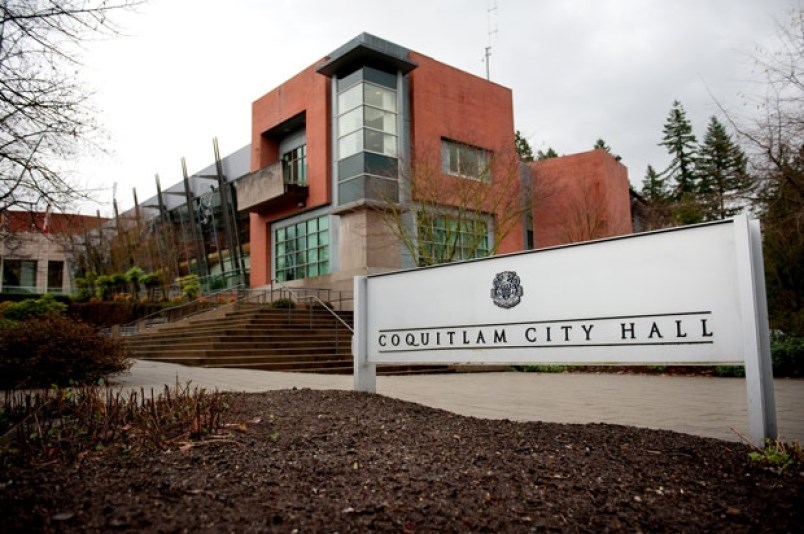Coquitlam is boasting its 2019 budget will have one of the lowest tax increases in the region, but it will mean a nearly 3% tax hike to residential property owners.
Council gave first three readings to the budget Monday that includes a 2.56% rise in property tax revenue. However, residential owners will see their taxes go up by 2.9% and commercial owners by 1.9%. The city said that’s because, in the past, commercial taxes have been relatively high in comparison to other jurisdictions, so it has been shifting the burden by 1% every year to the home owners until it levels out.
The city estimates the average homeowner will see a $57 hike to their tax bill in 2019.
“Coquitlam is in a good financial position with a strong economic outlook,” said Mayor Richard Stewart during his opening remarks at council Monday. “We have taken on no new municipal-supported debt in the last 10 years and have built reserves from non-tax revenues, helping us provide amenities to residents now and provide a legacy for future generations.”
The biggest expense is policing at $38.6 million. That increase includes giving the RCMP all of the $714,800 it requested to hire four of the six new officers it wants — it is asking Port Coquitlam to pay for the other two — for its youth, domestic violence, sex crimes and traffic divisions, and someone to dig evidence out of hard drives and computers instead of paying an officer overtime to do it.
The biggest beneficiary of this year’s spending plan was the parks department, but it was also the one with the longest wish list. In January, the parks, recreation and culture services general manager Raul Allueva asked for 13 enhancements carrying a price tag of $966,200, but got about two thirds at $660,300 with approval for the six biggest requests. They include a facility development manager costing an estimated $170,600, and two other managers with sticker prices of $149,200.
The planning department wanted six things but got five that will cost $404,000. The only item that didn’t make the cut was $143,000 to bolster the neighbourhood planning capital program to hire outside technical expertise, keep temporary staff working on public consultation, and expanding communication of its planning initiatives to the public. Instead council decided to pay for it out of density bonus funding.
The engineering department got approval for $246,000 for its fleet and customer service clerk requests. What it didn’t get was the $216,000 it wanted to add to the extreme weather budget to keep up with rising material costs and inflation, and support for several initiatives to increase service levels.
If all the requests had been granted the property tax rise would be about 3.8% according to a city report in January.
For the first time, the budget includes $700,000 to pay for the new provincial employer health tax which kicked in on Jan. 1.
That added .51% to the tax increase, something Stewart wasn’t too happy about.
“[Inflation and increased the demand for sophistication in services are] further compounded by the continued downloading of services from other levels of government, such as the new Employer Health Tax, or impacts from projects from other levels of government. Including, for example, the dispute we have with FortisBC. But the same can be said for the Trans Mountain Pipeline or projects by Metro Vancouver,” said Stewart,
Stewart noted only about 40% of its budget is funded by property taxes and utility charges. The rest comes from development cost charges, community amenity contributions, grants, matching funding from other levels of government, corporate partnerships or from city reserves.
The budget is expected to receive fourth and final reading on March 4.



